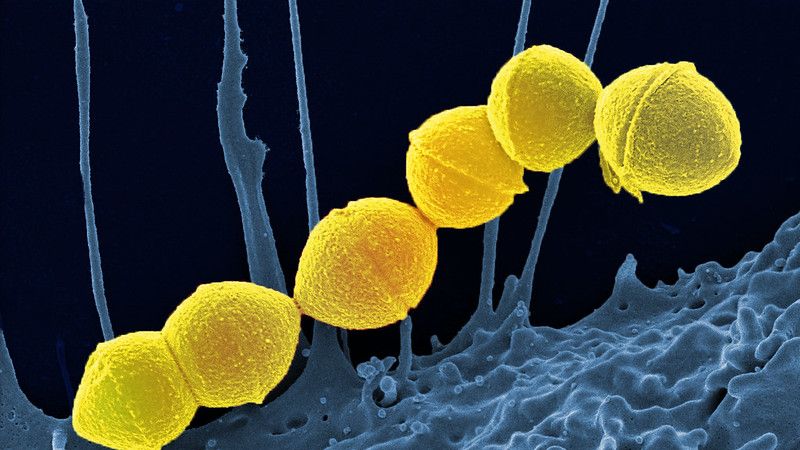Scarlet fever is a common childhood infection that is not usually serious. However, it should be treated with antibiotics to reduce the risk of complications, such as pneumonia, and to prevent it spreading to others.
The same Streptococcus pyogenes, or group A Streptococcus (GAS), bacteria which causes scarlet fever can also cause a range of other types of infection such as skin infections (impetigo) and sore throat. In very rare cases, the bacteria can get into the bloodstream and cause an illness called invasive group A Strep (iGAS). While it is very unusual for children with scarlet fever to develop iGAS infection, there has been an increase in cases nationally this year, particularly among under 10s.
To support awareness-raising efforts in Kent, KCC’s Director of Public Health, Dr Anjan Ghosh, has written to headteachers, nurseries, childcare centres and parents across the county.

“Most cases of scarlet fever are very mild but, working closely together with the NHS, I want to ensure everyone has the information they need to spot Strep A infections.”
Director of Public Health for Kent, Dr Anjan Ghosh, said:
"Most cases of scarlet fever are very mild but, working closely together with the NHS, I want to ensure everyone has the information they need to spot Strep A infections. We also want parents to be reassured and know what steps to take should they or their child show signs and symptoms of scarlet fever, including a sore throat, headache, temperature and sickness."
"Additionally, it is important residents are aware of the big part they can play in helping to stop the spread of Strep A infections this winter. This includes frequent hand washing, not sharing cutlery, clothes, bedding and towels, and immediately disposing of used tissues to ‘Catch it, Bin it, Kill it’ and keep up good hygiene."
Kate Langford, Chief Medical Officer at NHS Kent and Medway, said:
"Winter always sees an increase in childhood illness and many of these will get better without the need to use the NHS with rest and drinking fluids. It’s always important to wash your hands properly to stop spreading bugs, and using a tissue when you sneeze or cough, which is then put in the bin."
"However, looking after children can be difficult especially when it comes to their health, and the NHS is here for you this winter. Please contact 111 online if you need further guidance. NHS 111 online will help determine what the best course of action is. NHS services are always busy at this time of year and waiting rooms have limited space. To avoid overcrowding, if you can, please limit the number of people attending with a patient, although we understand this is sometimes not possible."
Other early symptoms of scarlet fever include:
- After 12 to 48 hours, a characteristic red, pinhead rash develops, typically first appearing on the chest and stomach, then spreading to other parts of the body, giving the skin a sandpaper-like texture
- The scarlet rash may be harder to spot on darker skin, although the ‘sandpaper’ feel should be present
- Patients typically have flushed cheeks and be pale around the mouth. This may be accompanied by a bright red ‘strawberry’ tongue.
If you think you or your child might have scarlet fever, you are advised to:
- Contact your GP or NHS 111, via 111.nhs.uk as well as by phone, as soon as possible
- Make sure the full course of any antibiotics prescribed is completed, and
- Stay at home, away from nursery, school or work for at least 24 hours after starting the antibiotics to avoid spreading the infection.
As a parent, you should trust your own judgement. Contact NHS 111 or your GP if:
- Your child is getting worse
- Your child is feeding or eating much less than normal
- Your child has had a dry nappy for 12 hours or more, or shows other signs of dehydration
- Your baby is under three months and has a temperature of 38C, or is older than three months and has a temperature of 39C or higher
- Your baby feels hotter than usual when you touch their back or chest, or feels sweaty, or
- Your child is very tired or irritable.
Call 999 or go to A&E if:
- Your child is having difficulty breathing – you may notice grunting noises or their tummy sucking under their ribs
- There are pauses when your child breathes
- Your child’s skin, tongue or lips are blue, or
- Your child is floppy and will not wake up or stay awake.
You can find further information about scarlet fever on both the NHS website and the GOV.UK website.
ENDS.




